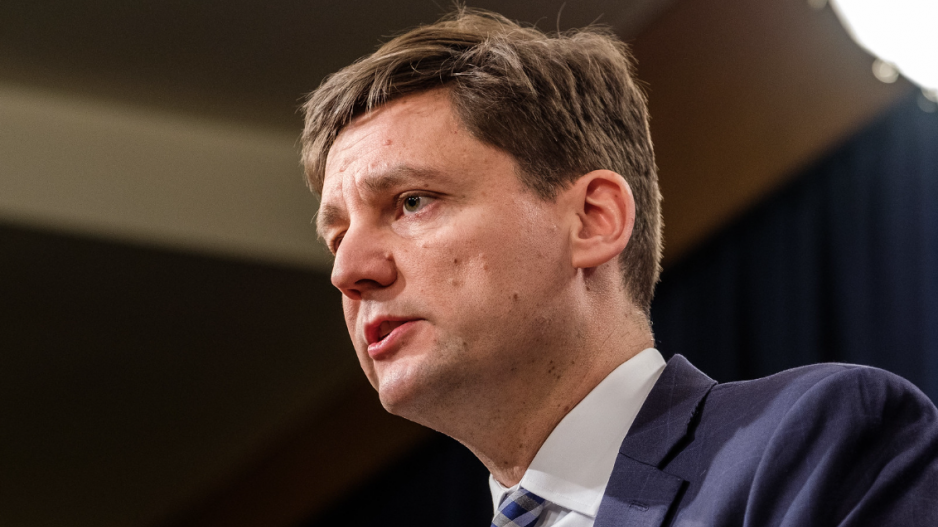When reality begins to fracture in a Hollywood movie, it’s usually called the multiverse — but when it happens in B.C. politics apparently it’s just called a throne speech.
That was the feeling you got reading the government’s speech from the throne Tuesday, in which New Democrats painted a spectacularly rosy picture of the province that you might not recognize from your own community.
Crime?
“In Vancouver, car thefts are down by 18 per cent and the number of unprovoked stranger assaults has decreased by 75 per cent between the first half of 2021 and 2023,” read the speech.
Health care?
“B.C. added more than 700 doctors and almost 6,300 new nurses over the last year” and “B.C. has eliminated the pandemic surgery backlog.”
Housing?
“In 2023, B.C. saw a record-setting 19,000 new rental homes registered – a 30 per cent increase from the year before.”
And so on.
The NDP’s policies are “starting to make a difference” and “seeing real results,” the speech proclaimed.
In what reality, was the question critics asked in reaction to the speech.
“This is the incredible parallel universe that this throne speech seems to inhabit, where everything’s just great in British Columbia, nothing to see here folks,” said BC United Leader Kevin Falcon.
“The reality is very different for people who spend any time on the streets.”
Similar thoughts from the BC Greens.
“The throne speech paints a picture that doesn’t match up with the real problems British Columbians are experiencing,” said leader Sonia Furstenau.
“Health care remains inaccessible for too many, schools are overcrowded and lack resources, homes are too costly, and the gap between the rich and the poor keeps getting wider.”
The speech walked a precarious line for the NDP government, attempting to both take credit for seven years of progress on key issues like affordability, housing and healthcare, while at the same time admitting those efforts have come up wildly short of what people actually expect.
That cognitive dissonance — things are actually getting really great, but we also know you know how awful they are — appears the core of the NDP re-election campaign messaging.
The throne speech did offer a vague glimpse into some things the NDP might do in the coming 10-week legislative session, before it breaks for the October election.
The speech mentioned some sort of aid to first-time homebuyers (which may or may not include stealing BC United’s rent-to-own program), a cost-of-living measure (perhaps a “big and shiny” affordability measure like a BC Hydro rebate the NDP hinted at in a leaked memo last year), more protections for renters, more doctors and nurses, and improvements to the 10-year cancer plan.
There was also a pledge to protect schools from anti-SOGI (sexual orientation and gender identity) protesters.
BC Conservative leader John Rustad, who has courted those protesters with his pledge to scrap the SOGI curriculum, called it a “slippery path.”
He also accused the NDP government, again, of “socialism.”
“This is what happens with a government that has socialist ideas that fail and they turn to authoritarianism,” he said, citing government overrides on housing, policing and the Land Act.
“That's what we're seeing from this government, from David Eby.”
Authoritarianism is a big stretch. Rustad sometimes seems like he’s in his own special universe when he starts talking like that. But it plays well on Twitter.
NDP house leader and Housing Minister Ravi Kahlon held court with media after the speech and tried gamely to spin the progress that government has been making on all files somehow springboarding into this session.
“What the throne speech always reflects is where British Columbians are at,” he said.
Unless it doesn’t.
“Only in an NDP world is it actually getting better,” said Falcon. “In the real world, which all of us inhabit, it’s actually getting worse.”
What reality are voters actually living in and how does it compare to the one sketched out by the NDP in the throne speech? We’ll find out in eight short months.
Rob Shaw has spent more than 16 years covering B.C. politics, now reporting for CHEK News and writing for Glacier Media. He is the co-author of the national bestselling book A Matter of Confidence, host of the weekly podcast Political Capital, and a regular guest on CBC Radio.


